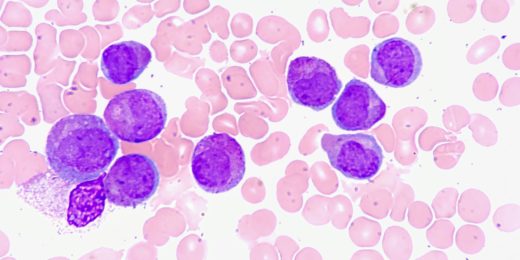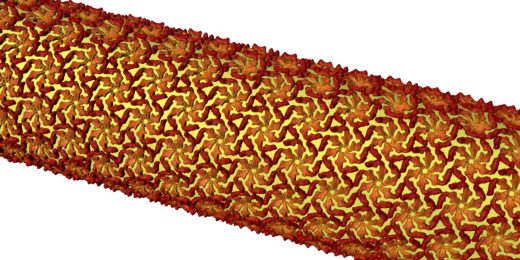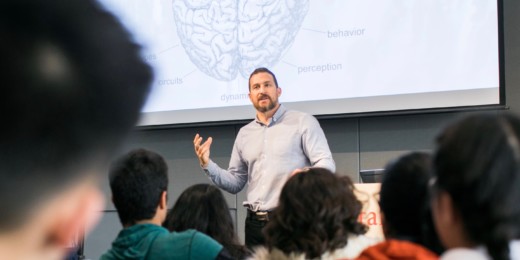Researchers are working to develop a wearable sensor to measure stress, anxiety and depression based on changes in cortisol levels and other parameters.
Author: Jennifer Huber
Testing infants’ blood may predict psychological health, study finds
Stanford study show the levels of cholesterol and fat in an infant’s blood can predict that child’s social and emotional development.
Publish or perish: The cost of reformatting academic papers
A Stanford-led study surveys the time biomedical researchers spend on reformatting manuscripts — estimating a $1 billion annual global labor cost.
A twisty career path to improve care for smokers
Jason Melehani, a resident in internal medicine, has had a long and eclectic career path toward developing new therapies to treat tobacco smokers.
Names matter: Transforming how we label foods
A study from Stanford researchers finds that food labels that highlight tastiness can improve healthy eating among students at five colleges.
Computer models show promise for personalizing chemotherapy
A Stanford biomedical data scientist discusses how computational modeling of big data could help improve personalized chemotherapy selection in the future.
Tackling caregiver depression in rural China: A Q&A
Caregiver depression in rural China is unexpectedly pervasive and harmful to children's health. A Stanford team is working to help.
Will antidepressants work? Brain activity can help predict
Using neuroimaging and machine learning, researchers were able to predict whether antidepressants would help individual patients.
Looking beyond drug treatments for parasitic disease
A Stanford study investigates the barriers to controlling parasitic disease and possible interventions beyond mass drug and education campaigns.
What type of concussion is it? The answer could affect treatment
Researchers have identified five types of concussions, which have different symptoms and initial treatments. All can disturb sleep.
Creating a new primary care clinic for cancer survivors
A new clinic at Stanford Health Care for cancer survivors is designed to integrate primary care with health after cancer.
How does radiation in space affect the brain?
A new study finds chronic irradiation causes physiological and behavioral deficits in mice, pointing to potential health risks to humans traveling to Mars.
Stanford study shows the power of ecofriendly packaging for cigarettes
A new Stanford study shows that people incorrectly think cigarettes with ecofriendly packaging are healthier and less harmful to the environment.
Stanford researchers watch proteins assemble a protective shell around bacteria
Stanford researchers watch in real time bacteria building their protective outer shell. Their findings may help develop treatments for bacterial pathogens.
Predicting women at risk of preeclampsia before clinical symptoms
Stanford researchers are working to develop a diagnostic blood test that can accurately predict preeclampsia prior to the onset of clinical symptoms.
Explaining neuroscience in ongoing Instagram video series: A Q&A
A Stanford neurobiologist continues with his challenge of explaining neuroscience in a series of brief videos on Instagram — for an entire year.

















